Managing Stress in Autism Parenting
Navigating Stress as a Parent of a Child with Autism: Strategies and Insights
Understanding the Landscape of Autism Parenting
Parenting a child with autism spectrum disorder (ASD) presents unique challenges and stressors that significantly impact parents' mental health and well-being. From managing behavioral issues to facing societal stigmas, autism parents often find themselves under immense pressure. This article delves into the multifaceted stressors related to autism parenting, explores their psychological impacts, and introduces effective strategies to manage such stress, backed by research and expert insights.
Common Causes of Stress in Autism Parenting
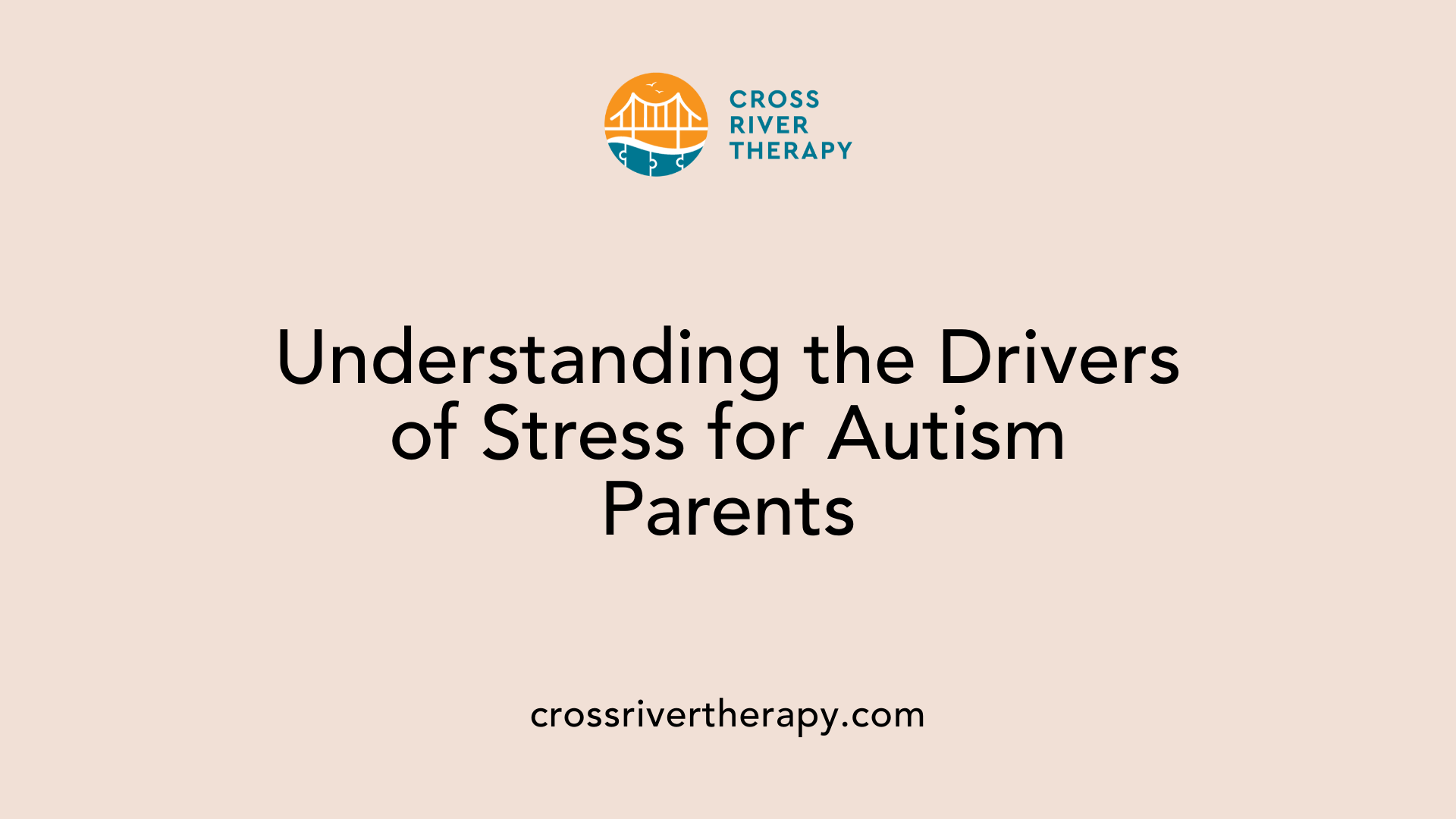
What are common causes of parental stress in autism?
Parents of children with autism face numerous stressors that can significantly impact their mental health and family dynamics. One of the most prominent sources of stress is the child's behaviors. Many parents report feeling overwhelmed by their child's inappropriate and unpredictable behaviors, which often stem from communication difficulties inherent in autism. These behavioral challenges can lead to frequent conflicts and heightened anxiety for the parents as they strive to manage their child's actions in public and private settings.
Another crucial factor is the emotional problems associated with parenting an autistic child. Parents often experience heightened anxiety regarding their child’s future, particularly concerns about societal acceptance and lifetime dependency. Many express feelings of guilt, loneliness, and hopelessness in managing their child's needs, with research suggesting that emotional dysregulation in autistic children directly correlates with increased levels of parental stress. Furthermore, the severity of autism symptoms exacerbates these emotional challenges, as more severe symptoms often correspond with more significant stress for parents.
Social support plays a vital role in alleviating parental stress. Parents who have a strong support network experience lower levels of stress and are better equipped to cope with the challenges they face. Conversely, a lack of social support can intensify feelings of isolation and overwhelm. Cultural factors also shape these experiences; for instance, parents in Southeast Asia may encounter unique challenges compared to those in Western countries, which can affect their access to resources and understanding of autism. Understanding these dynamics is essential for developing effective interventions that support the well-being of families affected by autism spectrum disorder.
Measuring Parenting Stress: The Autism Parenting Stress Index
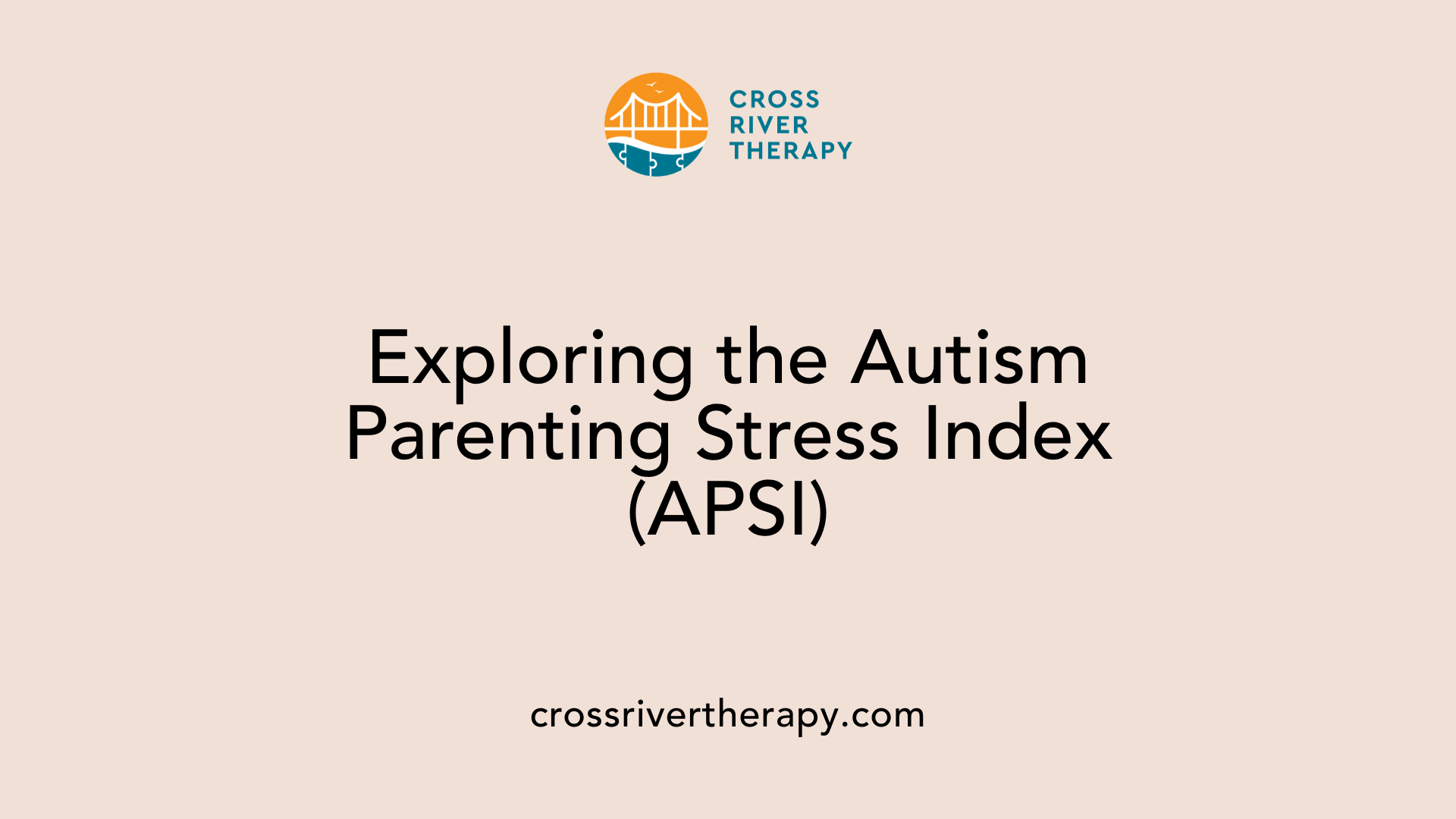
What is the Autism Parenting Stress Index (APSI)?
The Autism Parenting Stress Index (APSI) is a specialized instrument developed to evaluate the stress encountered by parents of young children with autism. This index addresses various stressors, focusing on physical, social, and communication difficulties faced by these families.
The APSI categorizes stress into specific areas, including:
- Core social disabilities
- Difficult-to-manage behaviors
- Physical issues
In a validation study involving 274 children aged six and under, the APSI demonstrated robust reliability with a Cronbach’s alpha of .827. An exploratory factor analysis of the data highlighted three main factors contributing to parenting stress:
- Core deficits related to social communication
- Co-morbid behavioral symptoms that complicate parenting
- Co-morbid physical symptoms affecting the child’s daily function
Authored by Silva, L. M., and Schalock, M., and published in the Journal of Autism and Developmental Disorders, the APSI is acknowledged as a credible and freely available resource for assessing family stress associated with developmental disabilities.
APSI Reliability and Validity
The APSI’s development included a comprehensive assessment of its validity and reliability. The strong internal consistency evidenced by the Cronbach’s alpha indicates reliable measurements across various stress domains. Moreover, the exploratory factor analysis provides essential insights into the key stressors impacting parents of children with autism, ensuring that the instrument is both practical and clinically relevant for enhancing parental support systems.
The Impact of Autism on Parenting Dynamics
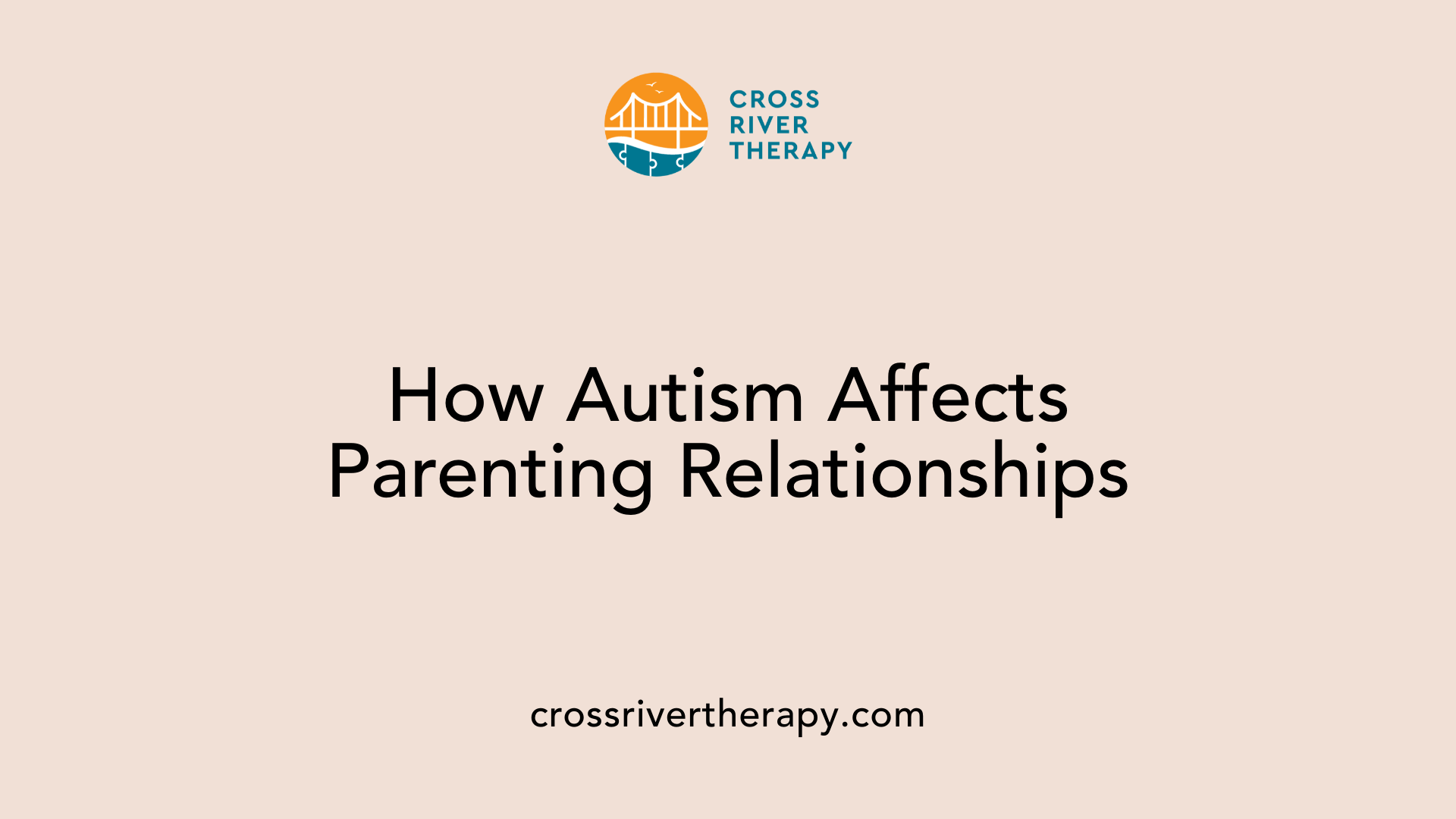
Challenges faced by parents on the autism spectrum
Parents of children with autism encounter unique challenges that significantly impact their parenting experiences. For parents on the autism spectrum, social interactions can be particularly daunting. This difficulty often results in limited participation in social settings, such as playdates or school activities, thereby restricting their support networks. The consequences can be profound—feelings of loneliness and isolation can intensify as these parents struggle to connect with others who may not fully understand their experiences.
Additionally, the daily demands of parenting may lead to sensory overload. Parents may find themselves overwhelmed by noise levels, crowded spaces, or unpredictable situations, which can exacerbate stress and anxiety. Managing these challenges necessitates a constant balancing act between the needs of their child and their own sensory sensitivities.
Sensory overload and social interactions
Disruptions to routines, which children with autism often require for stability, can provoke significant emotional responses from both the child and the parent. For example, a simple change in schedule could lead to meltdowns, illustrating how critical structured environments are for both individuals. Parents on the autism spectrum may face unique challenges due to heightened sensitivities, further complicating everyday tasks like preparing for school or attending social gatherings.
Nevertheless, many parents capitalize on their strengths. Increased attention to detail and a strong ability to focus can enhance parenting skills. When these parents recognize their sensory needs and adapt their environments accordingly, they can create a more supportive atmosphere not only for their children but for themselves as well. Understanding and accommodating these dynamics can lead to healthier family interactions and improved well-being.
The Stressor Load: Parenting a Child with Autism
How stressful is parenting a child with autism?
Parenting a child with autism presents unique challenges that can significantly heighten stress for caregivers, particularly mothers. Research indicates that parenting stress levels are closely linked to the severity of autism symptoms as well as behavioral problems exhibited by the child. For instance, children exhibiting challenging behaviors, such as aggression and social difficulties, can lead to notably increased stress for their parents. This relationship is crucial for understanding the well-being of families affected by autism spectrum disorder (ASD).
Behavioral problems as a key factor
Behavioral problems in children with autism are consistently identified as strong predictors of parenting stress. For example, mothers caring for children with severe ASD symptoms report feeling overwhelmed and, at times, experience psychological distress that mirrors traumatic stress. Furthermore, studies suggest that as behavioral issues escalate, parents report higher levels of anxiety and feelings of helplessness, contributing to a cycle of increased stress that can impact their overall quality of life.
Strategies to cope with stress
Despite these challenges, effective coping strategies can help mitigate stress for parents of children with autism. Engagement coping strategies—where parents actively seek emotional support and engage in problem-solving—have demonstrated positive effects, reducing the stress experienced by caregivers. Mindfulness practices, self-compassion, and building supportive networks are highlighted as essential tools in managing stress levels. These strategies not only help parents navigate their emotional landscape but also contribute to better outcomes for both parents and their children.
Coping Mechanisms for Autism Parents: A Lifeline
What are coping mechanisms for parents with autistic children?
Parents raising children with autism can face unique challenges that contribute to elevated stress levels. Implementing effective coping mechanisms is crucial for managing stress, anxiety, and depression.
Social Support
Building a strong support network is essential. Parents can look to family, friends, and community resources for emotional and practical assistance. This social support not only helps alleviate feelings of isolation but also strengthens resilience. Engaging in parent support groups could foster connections with those facing similar challenges, creating a sense of camaraderie.
Mindfulness
Mindfulness practices have been shown to effectively reduce stress levels. Techniques such as meditation, deep breathing, and focused awareness help parents remain present and manage overwhelming emotions. Incorporating these practices into daily routines can enhance overall well-being and provide a greater sense of control amidst chaos.
Self-Care
Prioritizing self-care is vital in preventing burnout. Parents should allocate personal time for activities that promote relaxation and joy, be it reading a book or engaging in hobbies. Additionally, maintaining a healthy lifestyle through exercise and balanced nutrition can significantly impact emotional health, making parents better equipped to handle daily stressors.
In summary, employing a combination of social support, mindfulness, and self-care can empower parents of autistic children to navigate their caregiving roles more effectively, improving their mental well-being and their child’s care experience.
Understanding the Societal and Cultural Challenges
Stigmatization
Parents of children with autism spectrum disorder (ASD) often face significant stigmatization in society. This stigma can manifest in many ways, such as negative judgments and assumptions about their child's behavior. These societal attitudes not only create a challenging environment but also add pressure on parents to manage their child's behavior in public settings, thereby heightening their stress levels.
Social Isolation
The experience of social isolation is common among parents of autistic children. The stigma attached to autism can lead to a lack of understanding from peers and the community, resulting in diminished social support. As over 80% of parents report feeling stretched beyond their limits, this lack of emotional and practical support exacerbates feelings of isolation, further compounding existing stress.
Cultural Perceptions
Cultural perceptions significantly influence how parents of children with ASD are treated. In some cultures, disabilities may be viewed through a lens of shame or inadequacy. This perception can lead to families withdrawing from communal ties, leaving them feeling helpless and overwhelmed. Supporting these families requires a shift in societal attitudes and cultural understandings towards autism, fostering acceptance and inclusion, while allowing parents to seek help without fear of judgment.
Managing Stress Through Support and Therapy
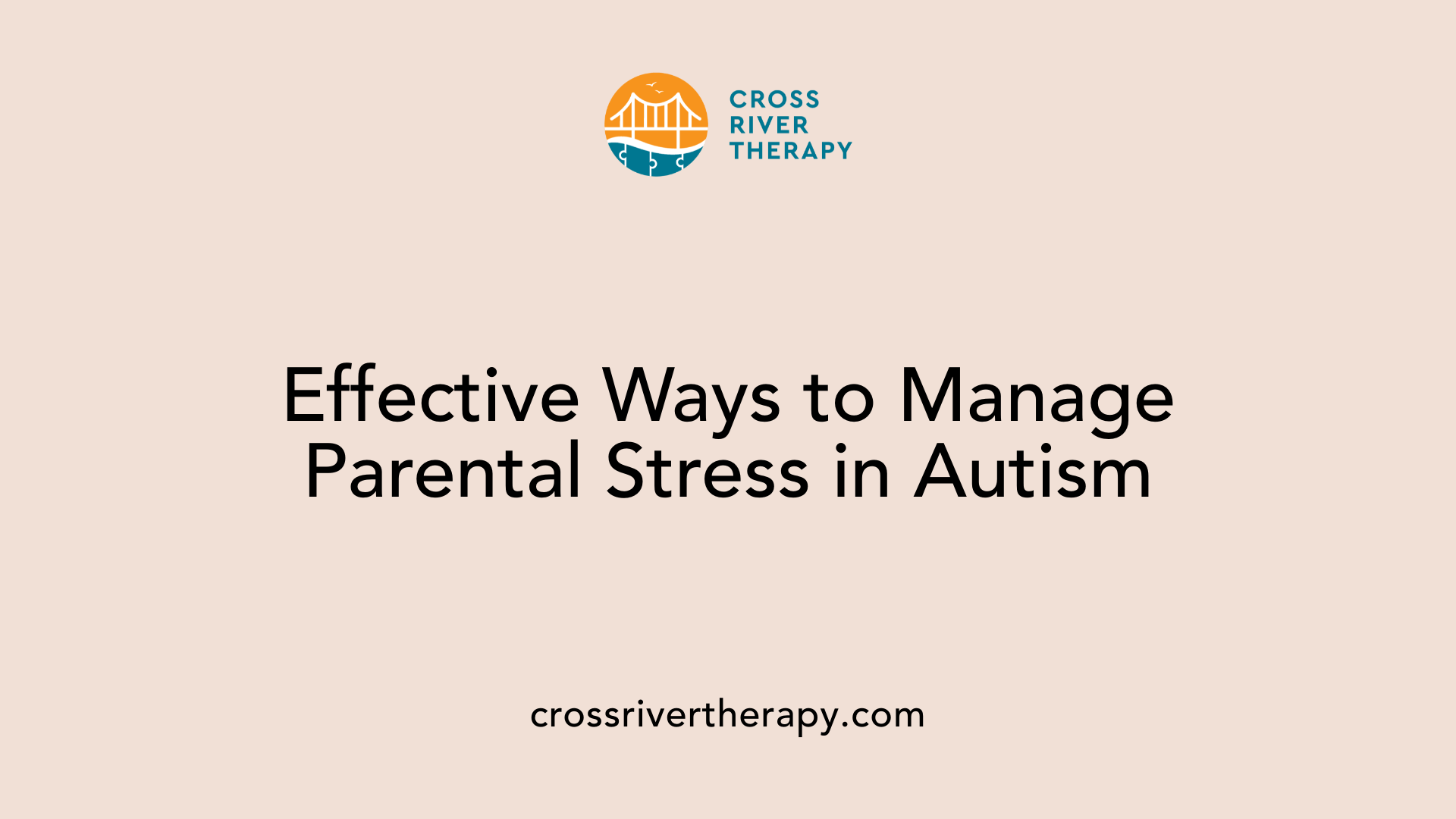
Respite Care
Respite care provides vital breaks for parents of children with autism, offering them much-needed time to recharge. This support can significantly reduce stress levels, allowing parents to manage their caregiving responsibilities better. Many families find that scheduling regular respite services helps them maintain a healthier balance between their personal lives and parenting duties.
Support Groups
Joining support groups can offer emotional relief for parents facing similar challenges. These community networks foster connections and provide practical advice for managing day-to-day stressors. Parents can share experiences, resources, and coping strategies, which significantly improves their well-being. Research shows that parents engaged in these groups report lower stress levels and increased feelings of social support.
Professional Guidance
Professional therapy and counseling can also play a critical role in managing stress. Licensed experts can help parents develop effective coping mechanisms and emotional regulation skills. For many, mental health support not only addresses individual stressors but also enhances overall family dynamics, contributing to a more resilient parenting experience.
| Type of Support | Description | Benefits |
|---|---|---|
| Respite Care | Temporary relief from caregiving responsibilities | Reduces burnout and improves well-being |
| Support Groups | Community of parents with shared experiences | Decreases feelings of isolation, provides practical help |
| Professional Guidance | Therapy or counseling for emotional support | Enhances coping strategies and family dynamics |
The Role of Emotional and Behavioral Challenges
Child's Emotional Regulation
Parents of children with Autism Spectrum Disorder (ASD) often face significant stress linked to their child's emotional and behavioral challenges. Difficulties in emotional regulation can lead to heightened aggression, frustration, and social behavior issues, all of which contribute to parents’ stress. Research shows that as the severity of these behavioral problems increases, so does the stress felt by parents.
Parent-Child Relationship Dynamics
These emotional challenges not only influence parents' stress levels but also impact the dynamics of parent-child relationships. Parents may find themselves in a hypervigilant state, constantly managing their child's behaviors and emotions. This ongoing pressure can create tension and conflicts within the family, further complicating the parenting experience.
Importance of Support Systems
Recognizing these challenges is critical for developing tailored support interventions. Enhancing parenting skills, particularly around emotional regulation, might support better parent-child interactions and reduce stress for families navigating the complexities of raising a child with autism.
| Challenges Faced | Impact on Parents | Potential Solutions |
|---|---|---|
| Emotional dysregulation | Increased parental stress | Training in emotional management |
| Behavioral issues | Strained parent-child relationships | Family therapy and counseling |
| Family tension | Conflicts and less effective parenting | Support groups and community resources |
Financial and Logistical Stressors in Autism Parenting
Financial Burdens
Parenting a child with autism can impose significant financial strain on families. The costs associated with therapies, special educational needs, and medical treatments can accumulate quickly. Insurance coverage may not always encompass necessary services, further deepening the financial burden. Parents often face the dilemma of balancing work while attending to their child's therapy sessions, leading to lost income and economic instability.
Access to Resources
In addition to finances, access to essential resources plays a crucial role in mitigating stress. Families may struggle to find suitable therapeutic services or educational options in their locality. This lack of access forces many parents to travel long distances, consuming time and resources, which can induce additional stress. Moreover, disparities in socioeconomic status can exacerbate these challenges, as lower-income families may not have the means to secure adequate support or respite care.
| Stress Factor | Impact on Parents | Possible Solutions |
|---|---|---|
| Financial Burden | Economic strain, anxiety over costs | Financial assistance programs |
| Access to Resources | Increased travel, unmet needs | Local community resource centers |
Societal Stigma and Its Effects on Parental Well-being
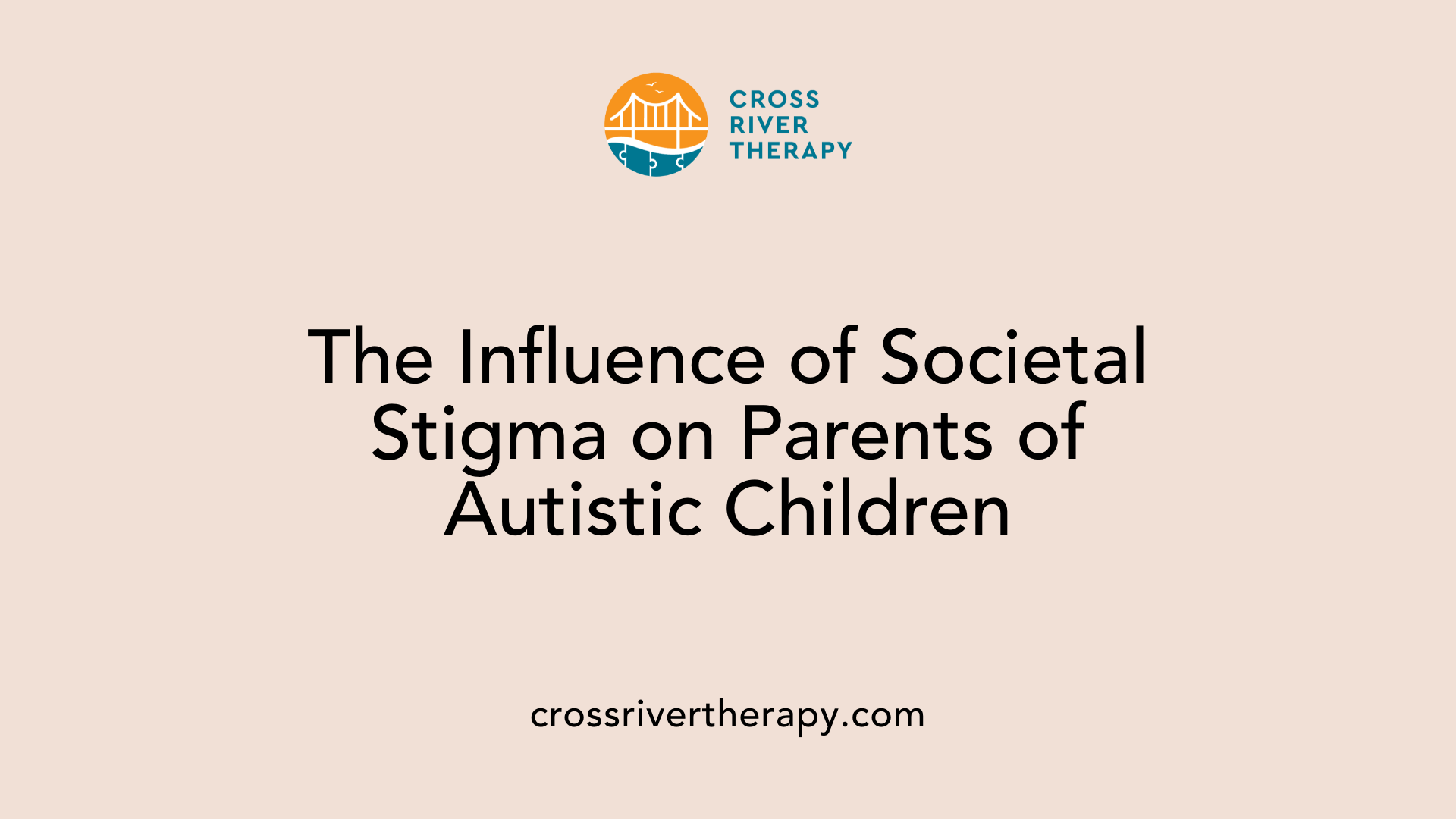
Cultural stigma impacts
Societal attitudes toward autism can exert significant pressure on parents, leading to increased stress and feelings of inadequacy. Stigmatization often makes parents feel like they should exert more control over their children's behavior in public, resulting in heightened anxiety during social interactions. Negative perceptions about autism can fuel worry about societal acceptance, further destabilizing a parent's emotional well-being.
Parental isolation
The isolation faced by many parents of children with autism compounds the effects of stigma. With supportive networks often lacking, these parents frequently report a sense of loneliness. This isolation can intensify feelings of guilt and hopelessness, making it even more challenging to manage the stress they experience. Research indicates that over 80% of parents feel stretched beyond their limits, predominantly due to limited social support. A strong social network is essential, as it not only helps in mitigating stress but also fosters resilience and coping strategies.
| Factor | Impact on Parents | Example of Support |
|---|---|---|
| Stigmatization | Elevated stress levels | Parent support groups |
| Isolation | Heightened feelings of loneliness | Community outreach programs |
| Lack of Social Support | Increased anxiety and depression | Online support networks |
Concluding Thoughts: Navigating Parenthood with Resilience
Autism parenting is an enduring journey that requires resilience and understanding from those involved. By acknowledging the unique challenges and stresses faced by parents, adopting effective coping strategies, strengthening support networks, and finding ways to manage personal well-being, parents of children with autism can foster more positive daily experiences for themselves and their children. Through continued research and the development of robust support systems, we can work towards easing the burdens faced by these families, ultimately enhancing their quality of life.
References
- Stress and The Autism Parent | Kennedy Krieger Institute
- How Parents and Caregivers of Kids with Autism Cope with Stress
- Research on Parental Stress & Autism
- Stress and Parents of Children with Autism: A Review of Literature
- Autism and Maternal Stress | Psychology Today
- Parenting Stress in Mothers of Children With Autism Without ...
- Family stress management & autistic kids | Raising Children Network
- Implications of parental stress on worsening of behavioral problems ...
- What is Parental Stress Connected to in Families of Children With ...
- Parental Stress Related to Caring for a Child With Autism Spectrum ...



